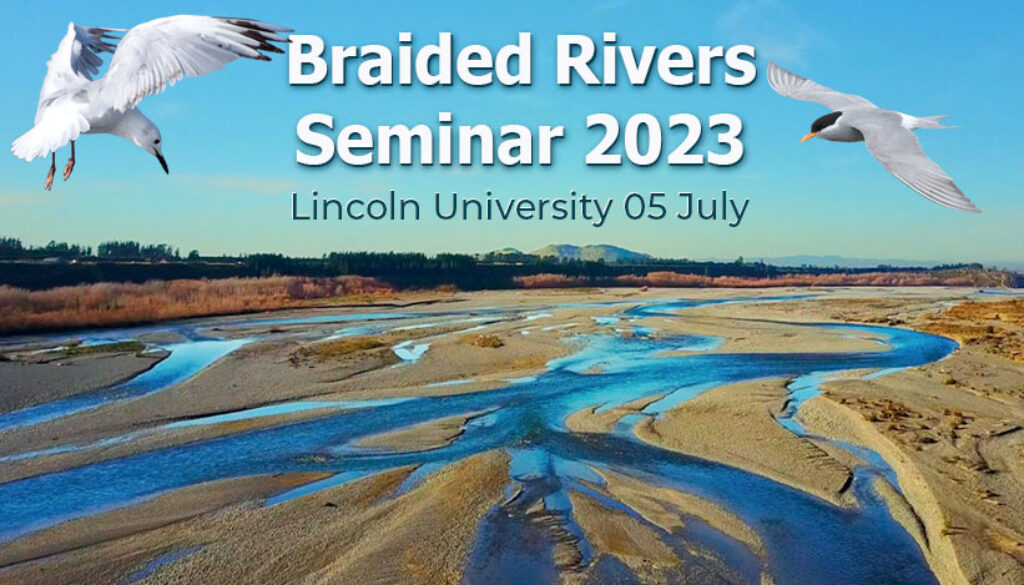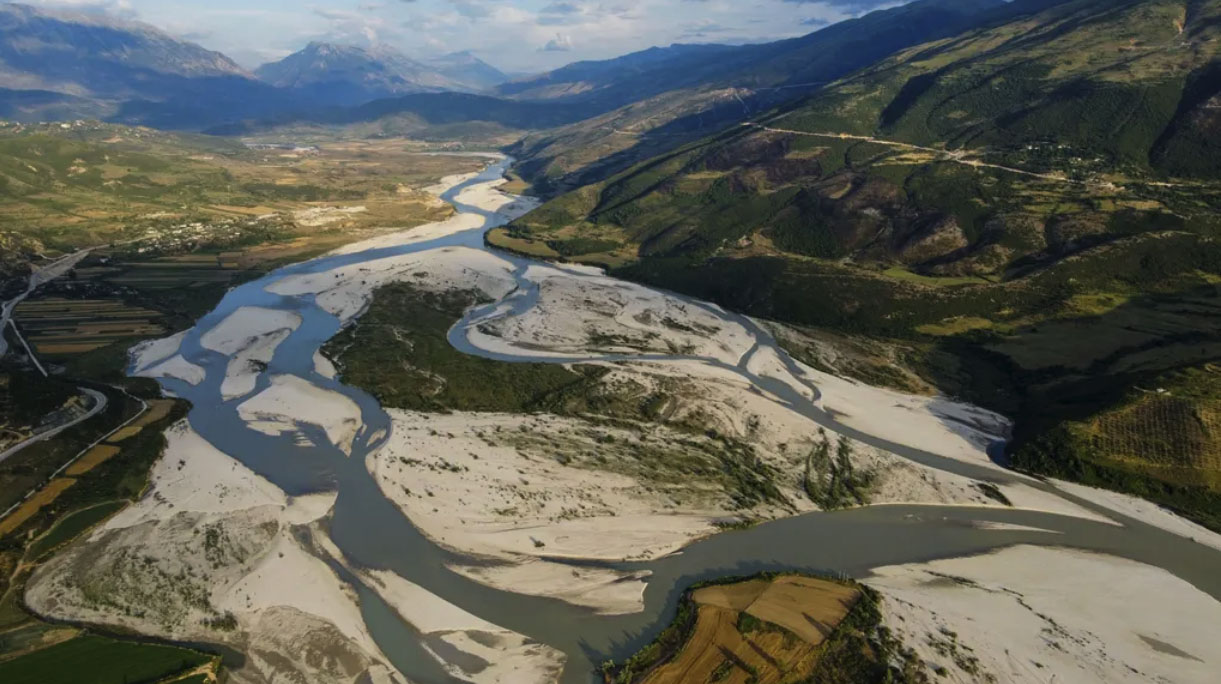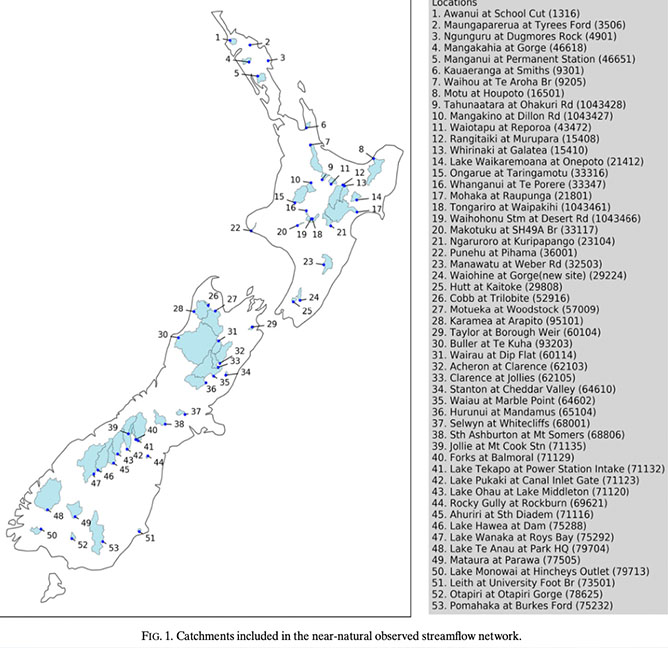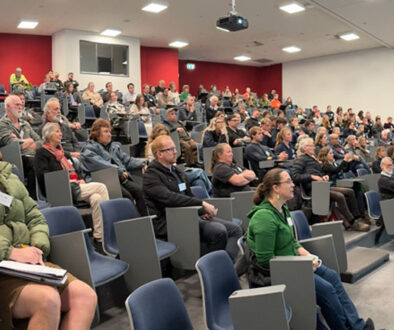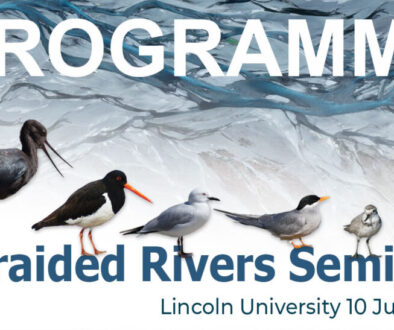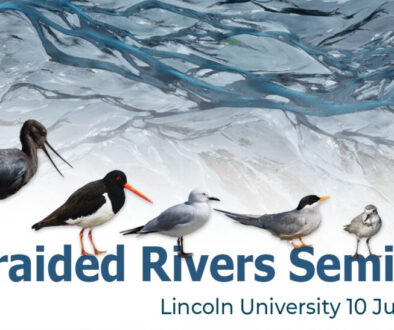Newsletter #79
Wednesday 05 July 2023, the annual Braided Rivers Seminar will once again be at Lincoln University. I have updated the booking page with the draft programme; there are likely to be very few changes. I will be updating the speaker biography pages as they come in. Meanwhile, take a few minutes to see what’s included in this newsletter as there is a lot happening in the ‘rivers’ space.
Upcoming events
- The ECan River Operations Report is now updated monthly, giving a three-month look ahead of current and planned works throughout the region.
- Birds New Zealand is inviting applications for this year’s Birds New Zealand Research Fund. Applications close 15 June.
- Predator Free 2050 is holding a presentation and Q&A session with Cam Speedy,
a wildlife biologist with over 40 years of experience in predator
control and ecosystem management | Rolleston: 6 – 7.30 pm Monday 8 May |
Christchurch: 6 – 7.30 pm Tuesday 9 May | Akaroa: 6 – 7.30 pm Wednesday
10 May
News
- ‘Historic moment’ for nature as Europe’s first wild river national park announced in Albania (image above). You can also read about this braided river in Politco
- How 19 words thwarted efforts to save our shrinking braided rivers (in Aoteaora). Stuff article by Charlie Mitchell. If you read nothing else in this newsletter, read this
- River flow forecasting: NIWA is developing a national river flow forecasting tool for New Zealand that aims to support and strengthen planning for and response to extreme rainfall events.
- Opinion: Native trees reduce flooding. Why not fund them like stopbanks? (Stuff)
- At the UN Water Conference, in March, six countries launched an initiative to restore rivers, lakes and wetlands by 2030 because these are most degraded ecosystems; they will work with Indigenous peoples and local communities. Sadly, Aotearoa is not one of the countries
- Video recordings of the recent Environmental Defence Society Conference (March 23-24) are now available
- Wee weasels may have big impact on native wildlife (Scimex press release)
- New disease caused by plastics discovered in seabirds: ‘plasticosis’ (The Guardian – the research was done around Lord Howe Island so has local implications)
- Killer cat facts we can’t talk about – and why that needs to change (Stuff)
- New report confirms mixed bag for bats (DOC)
- Abrupt slowdown of Antarctic overturning circulation now underway affecting the oceanic food chain: braided rivers birds that feed in estuaries and coasts will be severely affected along with seabirds (link to the Li et al research paper and video at the end).
- H5N1 Bird Flu Current Situation Summary (updated weekly)
- The latest NIWA survey of glaciers that feed our alpine braided rivers (see also the link to research below by Queen et al).
- Other climate change news
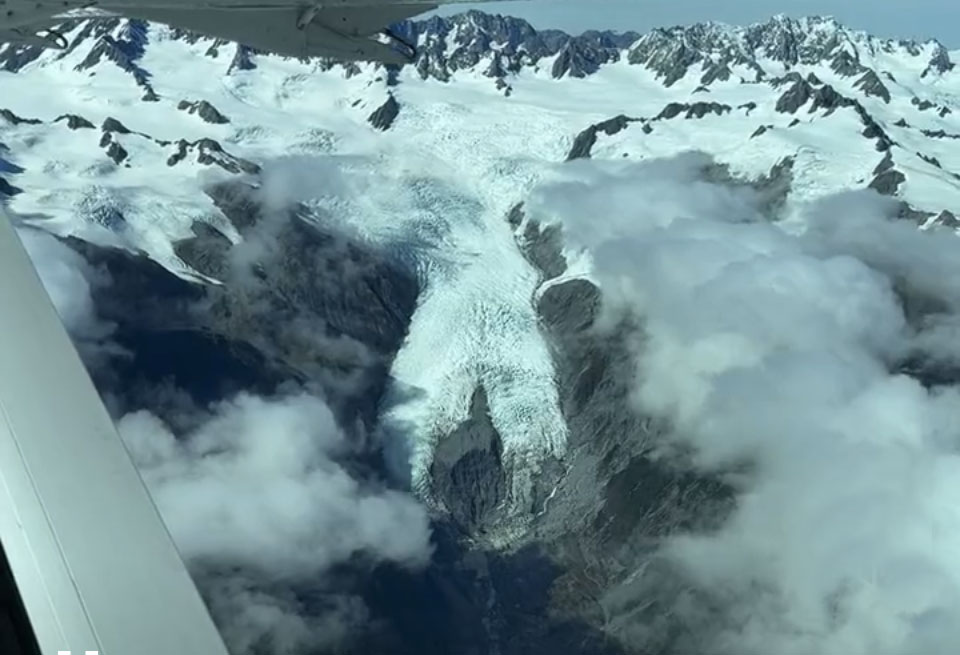
Reports and research
- Schlesselmann et al; Increasing wader abundance: vital rates of tōrea and residual pest indexing. Manaaki Whenua – Landcare Research and DOC have formed a research partnership to inform the conservation of New Zealand’s inland migrant bird species, with tōrea (South Island pied oystercatcher) as the focal species. DOC’s focus is building richer data on flyways and nodes. BirdsNZ is an additional project partner, supporting banding and re-sighting efforts through citizen science. (The project is now in its third year.)
- Wildlands Consultants: Monitoring of nesting braided river birds in the lower reaches of the rangitātā river during the 2022-2023 breeding season
- MfE: Our Freshwater 2023 (spoiler alert: it’s not good news)
- Murphy et al; Developing a new resetting tool for controlling rats (NZ Ecological Society)
- McAulay and Monks; Interspecific variation in predation patterns of stoats and weasels in an alpine conservation programme (NZ Ecological Society)
- Leathwick and Byrom; The rise and rise of predator control: a panacea, or a distraction from conservation goals? (NZ Ecological Society)
- Merz et al; Disruption of ecological networks in lakes by climate change and nutrient fluctuations (Nature Climate Change: open access) While the research is on Swiss alpine lakes and rivers, it reveals implications for our alpine lakes and rivers.
- Basso et al; Extreme flooding controlled by stream network organization and flow regime, (Nature Geoscience: open access)
- Queen et al; Spatiotemporal Trends in Near-Natural New Zealand River Flow (Journal of Hydrometeorology 24 (PDF of the paper)
- Li et al, Abyssal ocean overturning slowdown and warming driven by Antarctic meltwater, Nature 615 (video below).

